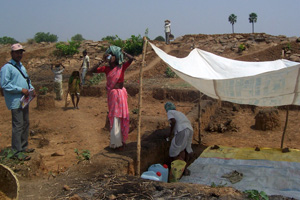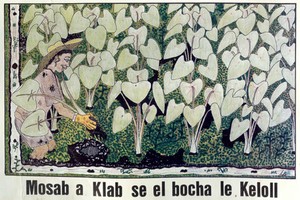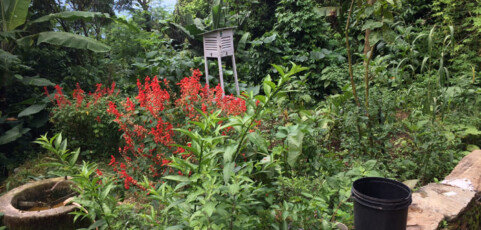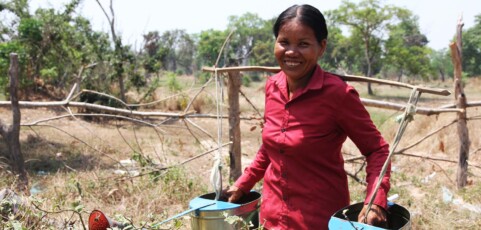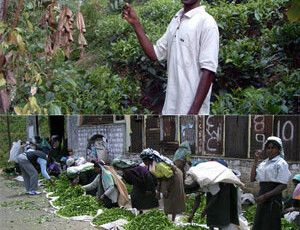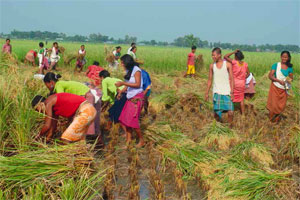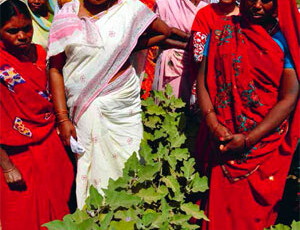India’s Mahatma Gandhi National Rural Employment Guarantee Act (MGNREGA) is the largest public-works based employment programme in the world. Unanimously enacted by the Indian parliament in 2005, implementation began in February 2006. With an annual budget of six billion US dollars, it now supports some fifty million rural people – larger than the population of Senegal, Mali and Niger combined. This article focuses on the successes, issues and potential of the Act to improve the well being of workers and family farmers.
Sustainable Way of Living – Homeschooling the Youth
Mainstream education has caused difficulties for the youth of northern Thailand in reaching their dreams. In most cases, they are forced to take exorbitant student loans which brings their families in poorer conditions.
This video proposes an alternative to mainstream education by home schooling the youth and teaching them the sustainable way of living. They are taught to live in a sufficiency economy model, consuming what they only need and driving themselves away from greed.
A ‘green revolution’ that may save Filipino coconut farmers
In agroforestry, farmers plant more than one type of crop and in different heights – a concept called multi-storey cropping. Like in the Marjes’ farm, you’ll find coconut trees or tall fruit trees watching over everything.
In lower levels are shorter fruit trees, coffee or cacao trees, and herbal plants. On the ground are pineapples, tuber and root crops like cassava, potato, and peanut.
Youth and agriculture: It’s up to us
With a population of more than 28 million, Nepal is one of the poorest countries in Asia. But it is enormously rich in terms of biodiversity and natural resources, and agriculture plays a very important role in the country’s economy. It is also very rich in another way: young people make up 40 percent of the population. The problem is that young people don’t seem to be interested in agriculture.
The Mother of Our Breath
Women have been the nurturers of the family and providers of food on land, while men have been providers from the sea. Children are expected to help their parents and other elders in their different tasks. This is the story of the Paulauan traditional family farming system in the western most regions of the Caroline Islands in the Republic of Palau.
Nutrition from innovation and taste from waste
From a situation of widespread undernutrition, consuming fresh vegetables all year round has now become a reality for many Nepali households thanks to their expanding home gardens. But the stories they tell show that the benefits of home gardens are not limited to improving household nutrition. The gardens also help to empower women and conserve biodiversity, two much needed conditions for better family and community nutrition on a broader scale.
Climate Resilience Sustainable Agriculture Experiences
This document summarises case studies from ten countries through ActionAid’s approach to climate resilient sustainable agriculture, which incorporates agroecology in a human rights framework. Based on these experiences ActionAid recommends to increase investment in agroecology, as part of a comprehensive human rights based approach: Read more
Participatory Guarantee System and Analog Forestry
Besides providing for many of our needs, forests play a pivotal role in providing ecosystem services, ranging from biodiversity conservation to climate regulation. Read more
Aprendiendo de los agricultores
La primera vez que leí sobre el SICA fue una tarde del 2002. En los siguientes años, en mi función de extensionista de la Oficina Distrital de Desarrollo Agrícola (DADO) empecé a promover el SICA en el distrito de Morang, Nepal.
SRI in Bihar: From one to 350,000
Farmers in Bihar were initially sceptical when they heard about the System of Rice Intensification, five years ago. Only one farmer decided to try it. From then, first by word of mouth and now with government support,

